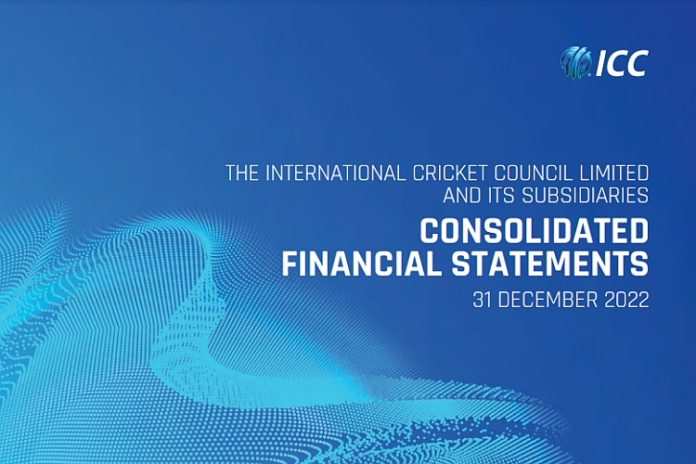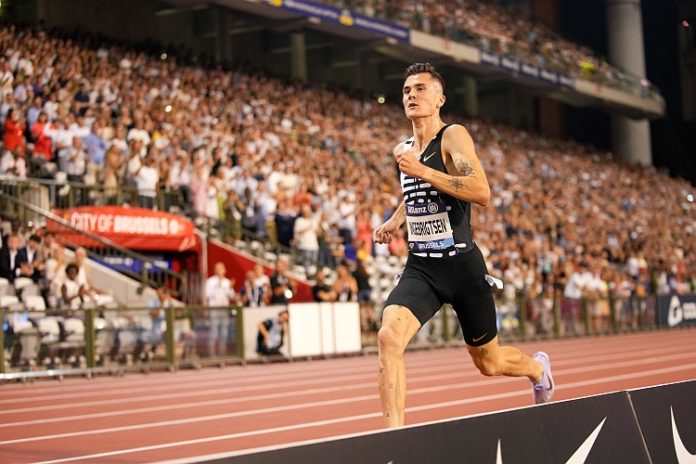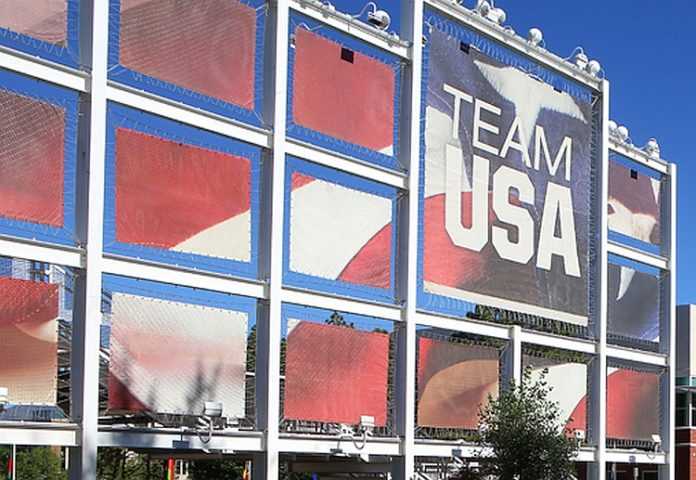★ The Sports Examiner: Chronicling the key competitive, economic and political forces shaping elite sport and the Olympic Movement.★
★ To get The Sports Examiner by e-mail: sign up here! ★
≡ THE 5-RING CIRCUS ≡
1. LANE ONE: Fine whine about cricket, CSUSOP and sustainability
2. Schroder named Most Valuable at FIBA World Cup
3. Rowing Congress shows Olympic TV dependence
4. Weightlifting anti-doping effort approved for 2024
5. Confidence in hosting events in Japan at “extreme low”
● In Lane One, a chance to whine about things seen this summer, and continuing in 2023, about cricket and flag football for Los Angeles 2028, what might come out of the USOPC review commission (that has little to do with the USOPC), sustainability claims, the World University Games and doing results right.
● German guard Dennis Schroder was named the Most Valuable Player of the FIBA World Cup, with Luka Doncic joining elite company with his scoring, and, did you know that the tournament carries no prize money?
● The World Rowing Congress took place on Monday following the world championships, with the documentation showing the federation is completely dependent on the International Olympic Committee’s quadrennial television rights fee distribution. Isn’t this also a sustainability issue?
● The International Weightlifting Federation, meeting in Saudi Arabia, confirmed a new anti-doping program designed to help it get back onto the Olympic program for Los Angeles in 2028.
● A Vice President of the Japan Wrestling Federation told a World Academy of Sport forum in London that confidence in her country in large events is “extremely low,” based on the high cost of the Tokyo 2020 Olympic Games and the continuing scandals that have come out post-Games.
● World Championships: Rowing (Russians, Belarusians not harassed at Worlds) = Weightlifting (Reyes and Javadi take 81-89 kg world titles) ●
● Panorama: Russia (doping figures for 2023 show lots of tests, quite a few positives) = Athletics (2: newest Kenyan distance doping positive; Des Moines honors Grand Blue Mile winners with “World Record Way”) = Football (2: court accepts Hermoso complaint; 11 Brazil players banned for match fixing) = Surfing (Marks and Toledo won World Surf League finals) = Tennis (U.S. in two Doubles finals at U.S. Open) = Triathlon (Jorgensen and Pearson win in Czechia) ●
● Schedule: Owing to a scheduling conflict, no TSX Report will be posted on Wednesday (and maybe Thursday). Back Friday for sure! ●
1.
LANE ONE: Fine whine about cricket, CSUSOP and sustainability
This has been a busy summer, with the World Aquatics Championships, FIFA Women’s World Cup, the World Athletics Championships and FIBA World Cup back-to-back-to-back-to-back, along with many others.
Covering these events and monitoring the politics, avarice and showboating attendant to all of them leads one to a certain level of exasperation. So, a little “fine whine” as the championship season of 2023 heads toward its close and Olympic politics stay hot:
● The chatter around the possible inclusion of cricket – controlled by the International Cricket Council (ICC) – and flag football – a project of the National Football League (NFL) – as added sports, either in addition to, or possibly at the expense of long-time American favorites baseball and softball is amazing.
Both the cricket crowd and the flag-football proponents wants the massive expansion of worldwide exposure that an Olympic berth – as a medal sport – would bring. The ICC has claimed that if selected, the television rights for the Los Angeles 2028 Games from India would rise from its current $14 million to more than $200 million. The NFL isn’t claiming that for flag football, but it offers a path for women to play without contact, and could be a significant way to expand the game down to the school level.
The difficulty for the ICC is that the IOC control the Olympic television rights, so LA28 gets nothing by selecting cricket, unless the IOC is willing to share. But the answer is at hand, since the ICC’s 2022 financials show the federation with $1.31 billion in assets and $913 million in reserves.
So, why shouldn’t the ICC simply pay LA28 the $200 million to add cricket – become a 2028 sponsor – with a promotional agreement that LA28 will stage test-event tournaments in the Southern California area annually in 2026 and 2027 for both men and women, further expanding the reach of the event for their newest sponsor.
And LA28 will work with the ICC to get the IOC to split the added television revenues in cricket-mad countries with them. Everybody wins, right?
The same logic applies to the NFL as well. Wouldn’t test tournaments in 2026 and 2027 significantly raise the flag football profile, as well as having the NFL as a sponsor?
Given the difficult economic environment worldwide which faces the LA28 organizers, why shouldn’t those federations desperately seeking future rewards contribute now, especially if they can (easily) afford it?
● Those looking for a roasting of the U.S. Olympic & Paralympic Committee at last week’s public hearing of the Commission on the State of the U.S. Olympics and Paralympics didn’t get much satisfaction.
But look for the report to pick up on the comments of the last panel, suggesting new concepts in developing grass-roots participation in sports in the U.S. The hearing’s first speaker, Arizona State Associate Professor of History, Dr. Victoria Jackson, did not address this in her remarks on the history that led up to the hearing, but commented separately on a theme which could well be a major focus of the CSUSOP report:
“I will not be making policy recommendations at the hearing. But I do have lots of policy ideas. I would like to see an overhaul and redesign of the American sports ecosystem. I want to see an independent body, perhaps a sports ministry, that serves as a hard backstop of regulation, coordination, transparency and accountability through checks on power, something the American sports ecosystem does not have.”
Watch for something along those lines when the Commission’s report comes out next spring.
● One of the most obnoxious wastes of time, space and – yes – energy are the claims made concerning sustainability and how much federations and organizing committees are doing.
A Nielsen study on the 2022 World Athletics Championships in Eugene, Oregon noted that the local organizers knocked themselves out, eliminating single-use plastics, using paper-based water containers, renewable energy, composting food waste, pushing public transit and much more, diverting almost 79% of all waste directly related to the event. Fantastic, right?
Well, all that effort reduced the environmental footprint of the event by 2%. Why? Because: “Total air travel undertaken by individuals to reach Eugene accounted for 75,537 tonnes of CO2 emissions.” And the total was 97,095 tons of CO2 emissions in all.
Any claim of event sustainability which does not take into account air travel emissions is simply not credible.
● The World University Games reappeared in 2023, with the event in Chengdu (CHN), with athletes from 116 countries competing in 18 sports and 269 events.
This was the 31st Universiade, but the first since 2019 due to the pandemic. And, once again, it was largely ignored by most media in most of the competing countries. Part of this is due to the age and eligibility requirements of being in college.
Part is also due to an outdated approach to the athletes as members of national teams. The WUG would be far more interesting if the athletes were identified by nation and school. Alabama? Duke? Texas? UCLA?
The Sorbonne in France? Fudan University in China? The International University Sports Federation (FISU) missed out on an enormous opportunity by not promoting the schools involved in the WUG, as much as countries. And with the 2029 WUG coming to the U.S., what about allowing universities to field their own teams, including players who are from foreign countries. Let the North Carolina Tar Heels play with its regular team as the U.S. entry, since its foreign players are in the country legally on a student visa.
● Speaking of the Chengdu WUG, did you know that China’s Yufei Zhang won nine gold medals in swimming? Yep: the 50-100 m Frees, 50-100 m Butterflys and five relays.
There’s a good reason you didn’t know: it wasn’t easy to figure this out. Beyond the general disinterest in the WUG, the results system did not generate a list of multiple medal winners. This is a common error in results systems, in part to save programming time and cost, but also because no one ever asks users what could be useful for them.
If you want to do it almost right, check out the Omega Timing results book for the just-completed World Aquatics Junior Championships in swimming held in Netanya (ISR). At the back of a 259-page list of all of the results of the meet are several key tables that EVERY results system should produce:
● List of medalists by event
● List of medalists by country
● List of multi-medalists
● Medal table
● Records set (and tied)
Major events such as the European Games, South American Games and even some of World Aquatics’ own events do not include these tables as part of their results systems. They should.
Even the Netanya book was missing a user-friendly addition, as the first page is the summary of the heats of the men’s 400 m Freestyle. The opening pages of any results book should be a list of the events in the order they are presented, to act as a way to find a specific event or race.
This is all in the programming, folks, and quite logical to those who think about the user experience.
There are lots of other things to complain about, but these will do for a start. Thanks for reading.
Rich Perelman
Editor
2.
Schroder named Most Valuable at FIBA World Cup
Germany’s unexpected 8-0 run to its first FIBA World Cup championship- was keyed by Raptors guard Dennis Schroder, who was named Most Valuable Player in the tournament following Sunday’s win over Serbia in the gold-medal final.
Schroder headed the All-Star team, which also included Canadian guard Shai Gilgeous-Alexander (Thunder), U.S. scoring star Anthony Edwards (Timberwolves), Hawks guard Bogdan Bogdanovic (SRB) and Mavericks star Luka Doncic (SLO).
Canada’s Dillon Brooks (Rockets), who scored an equal-tournament-high 39 points in the third-place match against the U.S., was named best defender.
Doncic won the scoring title, playing eight games and scoring 216 points for a 27.0 average, ahead of Jazz guard Jordan Clarkson (PHI: 26.0) and Finland’s Lauri Markkanen (Jazz) at 24.8. Doncic also became only the 12th player ever to score 200 or more points in a World Cup tournament; his 216 points ranks eighth all-time.
The U.S. finished fourth, but led the tournament in scoring at 104.5 per game – the only team over 100 – and shot 53.6% from the field, second only to Serbia (54.2%),
The 92 games drew 700,665 fans for an average of 7,616 per match, with games split between Indonesia (Jakarta), Japan (Okinawa) and three sites in the Philippines.
FIBA Secretary General Andreas Zagklis (GRE) explained some unusual facets of the tournament:
“There is no prize money for the World Cup. FIBA is supporting the federations in covering a lot of their costs. We have directly or indirectly contributed more than 80 million Swiss francs to the federations for their costs over the four years. …
“The Central Board has decided there is no prize money for national team competitions. What we generate in terms of resources – as a non-profit organization – is distributed according to our development programs and other distribution mechanisms across all 212 members of FIBA.”
FIBA’s costs include player insurance for all of its championship tournament, which costs more than CHF 15 million for the next four-year cycle, and a contribution of CHF 50,000 to all 32 federations for preparation costs for the 2023 World Cup. The 15 teams which advanced to the second group stage all received another CHF 100,000 for their added costs.
Zagklis also noted a high standard of support for all players; FIBA’s statement noted:
“All the players stayed in single rooms at the hotels.
“There were dedicated player lounges with a former player in charge as the liaison between the players, the teams, and the organizing committees. Former players also served as advisers on how to build those players spaces, which included amenities ranging from their own dedicated bar to a barber shop in every players hotel.”
3.
Rowing Congress shows Olympic TV dependence
Without the International Olympic Committee’s distribution of money from its Olympic Games television rights fees to the International Federations which help stage the Olympic and Winter Games, many of these organizations would fold.
World Rowing provided another example on Monday, as its annual Congress following their 2023 world championships included financial statements which documented their dependence on Olympic television money.
The federation’s assets were shown at CHF 14.224 million, or about $15.970 million U.S. (1 CHF = $1.12 U.S. today). This includes CHF 13.120 million in reserves, of which 73.979% is Olympic television money from Tokyo 2020 not yet spent.
World Rowing received $17,305,168 in Tokyo TV money from the IOC (CHF 16.051 million) and is spending it down by about CHF $4 million annually. Since the return of events in 2021, World Rowing has shown a substantial loss but for its Olympic television dividend:
● 2021 Revenue: CHF 2.610 million
● 2021 Operations: CHF 6.412 million
● 2021 Investments: CHF 0.45 million gain
This is a loss of CHF 3.352 million, but turned into a surplus of CHF 648,070 by the application of CHF 4.000 million of Olympic TV money.
● 2022 Revenue: CHF 3.448 million
● 2022 Operations: CHF 7.062 million
● 2022 Investments: CHF 1.245 million loss
So, another loss of CHF 4.859 million for the year in 2022, but only a loss of CHF 858,817 after another CHF 4.000 million from the Olympic television reserves.
The federation’s projections show reserves down to CHF 4.175 million by the end of 2024, when another Olympic TV dividend is being counted on. All four years from 2021 to 2024 show an annual loss outside of the Olympic television money it receives.
President Jean-Christophe Rolland (FRA) underscored the issue in his opening statement in the Congress package, which included:
“I would like to emphasise once again the very cautious management of our resources. We came out of the uncertainty around the Olympic revenue due to the possible cancellation of the Tokyo Olympic and Paralympic Games and given the very complex and costly conditions for postponement. The Executive Committee has pursued a policy of restricting expenditure, while ensuring that our priority missions were fulfilled, namely the smooth delivery of international competitions and the promotion of our sport, all in accordance with the rules of good governance.
“The Executive Committee has approved the project to review our marketing and commercial approach, a project which was presented at the 2022 Congress. We are committed to adapting to a context that has evolved, with a business and partnership model that has changed radically. It is essential that we have the resources to invest in promoting our sport and competitions. If we look at our disciplines, we can clearly see the different potentials of our sport.
“In parallel with the above-mentioned project, we have launched a project to review our events and the international competitions’ calendar. To repeat what I said at the 2022 Congress, we are facing the major challenge of rethinking our approach. The observations are straightforward: whether it’s the attractiveness of World Cups, or the large – too large? – number of events and duration of our World Championships . . . when the number of international competitions valued by broadcasters is low, we need to rethink and adjust our deliverables for tomorrow’s survival. That’s the whole point of this project, which should be completed by the end of 2024 followed by significant amendments to the Rule 25 of the World Championships Programme.”
Observed: There is no thought of rowing being removed from the Olympic program, and the federation is hopeful that some added events in beach rowing will be approved for Los Angeles in 2028 to compensate for the removal of the two Lightweight class events.
But the fact that, as Rolland notes, commercial interest in this sport is so low that it does not have the resources to promote itself is a danger sign for the future, for rowing and many other federations.
And it raises a new question of sustainability to be taken up by the IOC President who will follow Thomas Bach (GER): what is the IOC’s responsibility to prop up federations which cannot fund themselves?
4.
Weightlifting anti-doping effort approved for 2024
With considerably less fanfare than either boxing or modern pentathlon, the International Weightlifting Federation has been working quietly to restore the confidence of the IOC that it belongs back on the Olympic program for Los Angeles for 2028.
Boxing’s place has been assured, with the removal of the International Boxing Association as the recognized federation for the sport, and modern pentathlon is trying to convince the IOC that its move to obstacle racing is somehow going to ignite interest in the sport amidst a continuing revolt of many of its top performers.
Weightlifting, following major doping, financial and governance scandals, elected a new board and officers in 2022, led by former Secretary General Mohammed Jalood (IRQ) as President, and brought the highly-respected Rune Andersen (NOR), known for running the Russia Task Force for a decade for World Athletics, in as its Anti-Doping Commission Chair.
On Monday, its Executive Board approved Andersen’s Commission’s plan for enhanced anti-doping measures ahead of the Paris 2024 Games, that will include:
“[T]he categorisation of National Member Federations will be enforced from November 1, 2023. According to this categorisation, IWF members will be included in three different groups, taking into account their doping history and many other criteria related to their national anti-doping strategy.
“For the nations in the A group, a minimum of two out-of-competition tests will be mandatory for eligible athletes for the Paris Games, while educational anti-doping courses are also compulsory; in the B group, the requirements include one test per athlete and optional education; countries in C group won’t need to fulfil any special requirements. The list of countries in each category is to be announced in October by the International Testing Agency (ITA).”
An IWF Strategic Plan for 2024-32 was also approved, and will be submitted to Tuesday’s IWF Congress for final approval. In the meantime, the 2023 World Championships have been ongoing, reportedly at a high level, in Riyadh (KSA) and will continue through the 17th.
5.
Confidence in hosting events in Japan at “extreme low”
In the aftermath of the high cost of the Tokyo 2020 Olympic Games and the subsequent scandals over sponsorship sales and bid-rigging for test event and venue contracts, a Vice President of the Japan Wrestling Federation said this is a low period for Japan to look at future events.
“Essentially, hosting Tokyo 2020 stole the dreams of the sport events industry in Japan as it completely failed to live up to its promise,” said Dr. Kuniko Tanioka, the President of Shigakkan University, and Vice President of the Japan Wrestling Federation. She spoke at the second Global Sports Agora, held by the World Academy of Sport in London (GBR).
“Unfortunately hosting the Games did not fulfil the perception that they would be economically beneficial to Tokyo as a city or Japan as a country. Although the COVID-19 pandemic had a major influence on that, other issues had a negative effect too and the malaise is still being felt now.”
The Tokyo Games continues to be reported on as the sponsorship-sales and bid-rigging scandals continue through the Japanese court system more than two years after the event ended. One of the results has been the blowback against a front-running bid from Sapporo for the Olympic Winter Games in 2030, now postponed to a future Games:
“Confidence in hosting sports events in Japan is at an extreme low.
“However, we now have a great chance to build that confidence back up in Japan as the city of Aichi-Nagoya moves forward in its preparations for hosting the 2026 Asian Games. The [Global Sports Agora] has highlighted the role that the private and commercial sector can take in building relationships with the sports industry and collaborating through greater transparency and integrity so that the mistakes of Tokyo 2020 are not repeated.”
Tokyo will get a major shot at redemption in 2025, however, as it hosts the World Athletics Championships in the National Stadium that had to sit empty during the Olympic Games due to the pandemic. That and the 2026 Asian Games could be feel-good moments for Japan and sports.
≡ WORLD CHAMPIONSHIPS ≡
● Rowing ● More from World Rowing chief Rolland, who said on Monday that there were no incidents with the three Russian or seven Belarusian athletes entered at the Worlds in Belgrade (SRB) that concluded Sunday:
“Under the current circumstances, there cannot be an ideal solution, it would be easier to say no, it would cause less controversy, but our responsibility is not to make life easier, our responsibility is to fight for the values we believe in and realize how difficult it is to put emotions aside, especially in the context of this state of affairs. We must consider the arguments for and against. I do not intend to open a discussion on this topic now, I understand that the issue is very sensitive and political pressure must be taken into account. I also understand and I respect the position of each national federation, I understand that they are different.
“In our three tournaments – in Plovdiv, Paris and Belgrade – nine neutral athletes competed, and I am pleased to report that all of them fully complied with the rules of neutrality, without a single incident. I am also pleased to report that these athletes were treated with respect all participants in the competition.”
● Weightlifting ● The men’s 81 and 89 kg classes at the 2023 IWF World Championships in Riyadh (KSA) were decided on Monday, with new winners in both, and a world mark in one lift.
At 81 kg, 2021 World Junior Champion Mukhammadkodir Toshtemirov of Uzbekistan led after the Snatch at 164 kg, and then Rahmat Erwin Abdullah (INA), the 2021-22 winner at 73 kg, set a world record of 209 kg in the Clean & Jerk. But the winner of the weight class was Italy’s European champ Oscar Reyes, who was second in Snatch and only fourth in the C&J, but his combined total of 356 kg was golden. Abdullah was second at 354 kg and Toshtemirov – who made only his first lift in the C&J – won bronze (352 kg).
Iran’s Mirmostafa Javadi won the Worlds silver at 81 kg in 2021, but won at 89 here, placing sixth in Snatch, but winning the Clean & Jerk at 215 kg for a 384 kg total. That barely beat world-record holder Dayin Li (CHN), last year’s 81 kg champ, who lifted 383 kg, despite making only one successful Snatch lift. Venezuela’s Keydomar Vallenilla, the 2022 winner of this class, was third at 381 kg. American Clarence Cummings was 25th at 336 kg.
≡ PANORAMA ≡
● Russia ● The Russian Anti-Doping Agency (RUSADA) reported test statistics for 2023, with 6,820 tests carried out through the end of August, and 105 positives.
For comparison, the U.S. Anti-Doping Agency reports its statistics quarterly, and had 4,889 tests and 35 sanctions for the first six months of this year. For RUSADA, it conducted 5,280 tests during the same period and had 91 positives.
● Athletics ● Another Kenyan doping positive, this time of 41-year-old Agnes Jeruto Barsosio, whose samples in 2022 showed “likely doping,” and an admission of doping was received in August 2023. A penalty of four years was imposed, plus another two years for “aggravating circumstances,” in this case, repeated violations, lowered by one year for her admission, to five years in total. The five-year suspension began on 6 September 2023and her results since 9 May 2022 have been nullified.
Jeruto Barsosio has a lifetime best of 2:20:59 from 2017 as the Paris Marathon runner-up.
¶
Never one to miss a promotional opportunity, an honorary street naming was approved by the Des Moines City Council on Monday, naming of 13th Street as “World Record Way” between Grand Avenue and Locust Street in downtown Des Moines.
This area is just beyond the finish line of the Grand Blue Mile held annually, and which, in 2023, saw wins by Americans Sam Prakel (4:01.21) and Nikki Hiltz (4:27.97), which are being submitted as the first World Athletics-ratified world records in the road mile.
● Football ● The Spanish National Court accepted the complaint for sexual abuse and coercion by now-resigned Royal Spanish Football Federation President Luis Rubiales. This technical procedure allows the court to begin gathering evidence that could lead to the filing of formal charges against him.
¶
FIFA’s Disciplinary Committee has extended the bans on 11 Brazilian players for “match manipulation” to worldwide status, with three players listed with lifetime bans and two for two years. The original penalties were imposed by the Brazilian federation (CBF).
● Surfing ● At the World Surf League final off San Clemente, California, the all-American (sort of) women’s final saw Caroline Marks of the U.S. top Tokyo Olympic gold medalist Carissa Moore (Hawaii), 17.10 to 14.97 and 14.60 to 13.53, for her first WSL title. Marks won her fourth tournament of the season and her seventh medal out of 11 starts.
The men’s title went to defending champion Filipe Toledo of Brazil, who got past Ethan Ewing (AUS) by 2-0 in their final (17.97 to 17.23 and 14.27 to 12.37). It’s Toledo’s fourth win of the season and 17th career victory, while Ewing finished second in three of the last four events of the season.
● Tennis ● In addition to the high-profile singles U.S. Open finals, where Novak Djokovic (SRB) swept Russian Daniil Medvedev (6-3, 7-6, 6-3) for his 24th career Grand Slam title and fourth at the U.S. Open, and American star Coco Gauff dispatched Belarus’ Aryna Sabalenka (2-6, 6-3, 6-2), the U.S. was heavily involved in the Doubles finals.
In the men’s Doubles, Rajeev Ram (USA) and Joe Salisbury (GBR) defeated Rohan Bopanna (IND) and Matthew Ebden (AUS), 2–6, 6–3, 6–4; it’s the third straight U.S. Open Doubles title for Rav and Salisbury.
In Mixed Doubles, the U.S. pair of Jessica Pegula and Austin Krajicek got to the final, but lost in straight sets to Anna Danilina (KAZ) and Harri Heliovaara (FIN), 6–3, 6–4.
The pairing of Gabriela Dabrowski (CAN) and Erin Routliffe (NZL; ex-Canada) took the women’s Doubles final from Laura Siegemund (GER) and Vera Zvonareva (RUS), 7–6, 6–3. It’s the first U.S. Open title for the women’s and Mixed Doubles winners.
● Triathlon ● Comebacking Rio 2016 Olympic champ Gwen Jorgensen posted another World Triathlon Cup win in Karlovy Vary (CZE), using her feared running speed to track down Rachel Klamer (NED), 2:03:51 to 2:03:55 in the Olympic-distance race.
Jorgensen was eighth out of the water and sixth-fastest on the bike, and in contention when the 10 km run segment started. She and Klamer were 1-2 on the run in 34:39 and 34:45 and that’s how they finished.
Fellow American Morgan Pearson won the men’s race for his first World Triathlon Cup gold, dominating the field in 1:51:55 to 1:53:05 for runner-up Mark Devay (HUN).
¶
You can receive our exclusive TSX Report by e-mail by clicking here. You can also refer a friend by clicking here, and can donate here to keep this site going.
For our updated, 787-event International Sports Calendar (no. 3) for 2023 and beyond, by date and by sport, click here!























